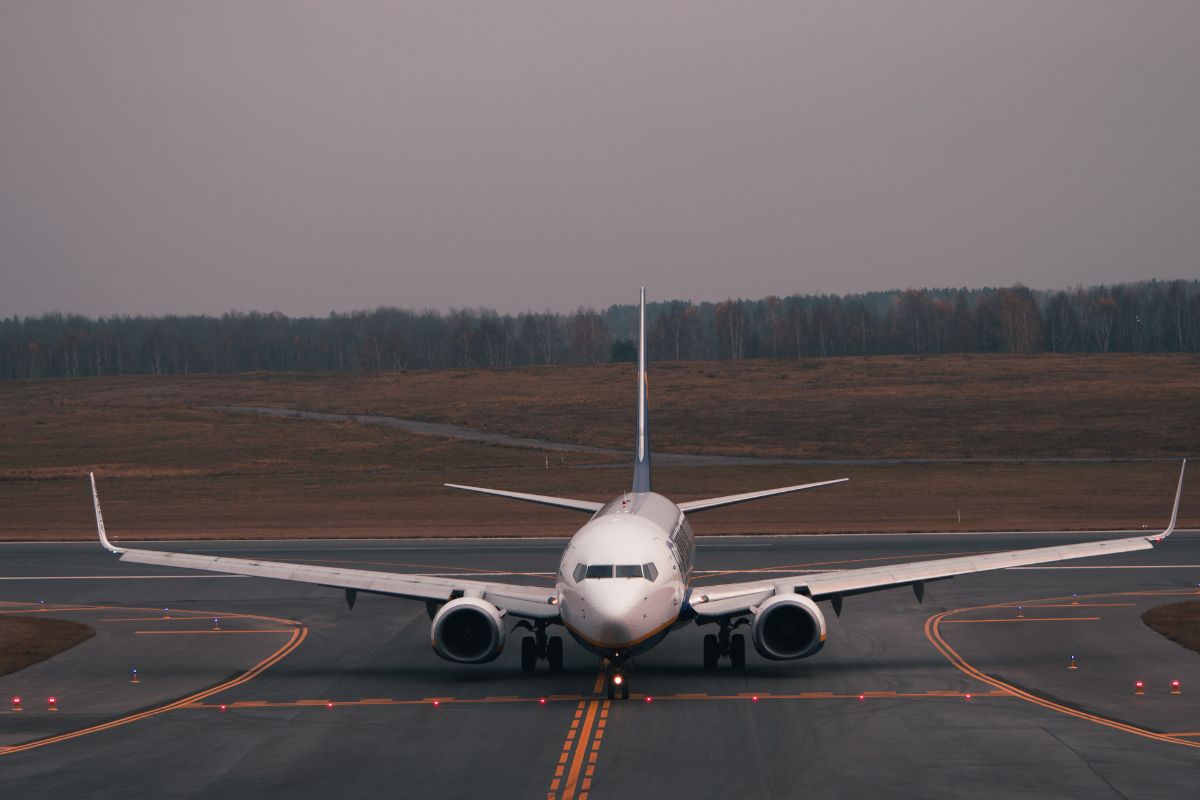Shari Ann Chinnis Indianapolis – A Case Study in Air Travel Disruption

You may wonder who Shari Ann Chinnis is. She is a name known from the June 2024 incident at Indianapolis International Airport. It’s a name that now goes in the lexicon next to air travel disruption.
The Shari Ann Chinnis Indianapolis Incident
On this seemingly ordinary Friday, June 1st, 2024, just before taking off, a Delta Connection flight bound for New York-LaGuardia was returned to the gate because of some passengers who became unruly.
One of them was Shari Ann Chinnis. Reports indicated she turned “verbally argumentative” after being asked repeatedly to stow her bags for takeoff. Things went so uphill that the flight crew felt compelled to request her removal from the aircraft. This incident has been a great inconvenience to all the passengers on board.
Not only was the journey time extended by nearly an hour and a half, but it also created a situation of tension and discomfort for all persons concerned. It is a sobering reminder that for the safety and comfort of everybody concerned, passengers must abide by the instructions of the flight crew.
A Growing Problem
The case of Shari Ann Chinnis Indianapolis is sadly not unique. In recent years, unruly passenger incidents aboard flights have been on the rise. According to the Federal Aviation Administration, there has been an uptick in the number of cases checked in; thousands of reports are filed every year. This trend has set airlines and aviation authorities ringing with alarm bells to put stricter measures in place.
The Impact on the Aviation Industry
The consequence of these incidents to the aviation at large is great. The airlines greatly suffer from delays, diversions, and possible damage to aircraft. Moreover, it can lead to a loss of the reputation of the sector in its entirety, reducing passengers’ confidence. These are intricate matters for which easy answers do not exist.
What Can Be Done?
This would have to be multifaceted in order to avoid any more cases similar to that of Shari Ann Chinnis. Airlines should commit to complete training for their flight crews regarding dealing with stubborn passengers effectively. Then there has to be a bigger level of clarity in communication and enforcement concerning policies for behavior.
However, the passengers need to know their part of the responsibilities and follow the instructions given by the flight crew. Air travel is all about sharing experiences in which everyone has a role to play in giving priority to safe and pleasant journeys.
Importance of Passenger Education
It is very necessary that civil aviation etiquette be imparted to passengers and follow crew instructions. Awareness campaigns by airlines would bring awareness among the public of the implications of unruly behavior. The etiquette of air travel should be part of the curriculum in schools and other institutions.
Listen with Empathy
While no apologies can be made for Shari Ann Chinnis Indianapolis and others like her, it is time to act with empathy. There are so many causes that can incite unruly passenger behavior: stress, fatigue, or even mental health issues. Getting to the root of these matters can help in making sure that such incidents do not occur again in the future.
A Nation on Edge
The Shari Ann Chinnis Indianapolis incident, if anything, is far from being an isolated case. Running into thousands, cases of air travel turning into a battleground of tempers range from verbal abuse to cases of fisticuffs.
There has been a stunning spike in unruly passenger reports, according to the FAA, which reflects a dark portrait of a travel environment on edge. At the same time, this trend presents a call to airlines, airports, and law enforcers to reshape security protocols and strategies relating to passenger management.
The Human Cost
Coupled with the troubles and financial losses incurred by airlines, there could not be any mollified word choice for the cost of human factors while considering the conduct of unruly passengers. It places flight crews, often the first line of defense, under colossal pressure to de-escalate situations while maintaining safety.
Fellow passengers get caught in the crossfire as well, while their travel plans are disrupted and their sense of security is compromised. Air travel disruptions have a huge impact on the psychology of customers. Anxiety, stress, and frustration are common companions while traveling. Incidents like Shari Ann Chinnis Indianapolis boost these emotions by creating fear and uncertainty.
Complex Problem
Factors that cause unruly passenger behavior are numerous and complicated.
- With a surge in air travel demand, long security lines, delayed flights, and mounting economic pressure, tensions rise.
- Second, with an increase in the use of social media, passengers’ complaints found their expression platform, very often resonating and further heightening tensions.
- Another is the consumption of alcohol. Airlines have placed limits on it, but its wider availability still is a problem in airports and on some flights.
Finding Solutions
The issue of unruly passengers needs a multi-dimensional approach. Adequate training of the crew with respect to de-escalation techniques, resolution of conflicts, and communication of passenger expectations in so far as their behavior on board an aircraft is concerned—this must include consequences of failure to comply.
Security screening at airports needs to be tightened; visible policing can work as a deterrent in the cases of misbehaving passengers. At the same time, one needs to take care not to compromise on passenger convenience on account of security. Technology might also have its role.
Facial recognition and behavioral analysis are technologies that, when perfected, could identify potential troublemakers before even boarding. But such measures would have to balance concerns over privacy.
Eventually, what is needed is a shift in the mindset of travelers. Air travel is a communal experience, and it’s everyone’s responsibility to help foster a safe and respectful environment. Therefore, passenger education on etiquette in aviation and compliance can act as a long-term panacea to help prevent such incidents.
For Calm
The tragic story of Shari Ann Chinnis Indianapolis is sure to send the aviation industry unending panic. But, amidst easy picking of the negative, remember that the vast majority of air travelers are respectful and considerate individuals. If a culture of respect and understanding is fostered, that would go a long way in making air travel a stress-free experience for everybody.
Conclusion
The case of Shari Ann Chinnis Indianapolis, however, brings one right back to the ground with a thud, reminding the aviation industry of the challenges it faces. A safer and more enjoyable flying environment can be made for all if airlines, passengers, and authorities work together. It is a journey that calls for relentless effort and a commitment entailing understanding and cooperation.
SHARE
Stay in touch
To be updated with all the latest news, offers and special announcements.







